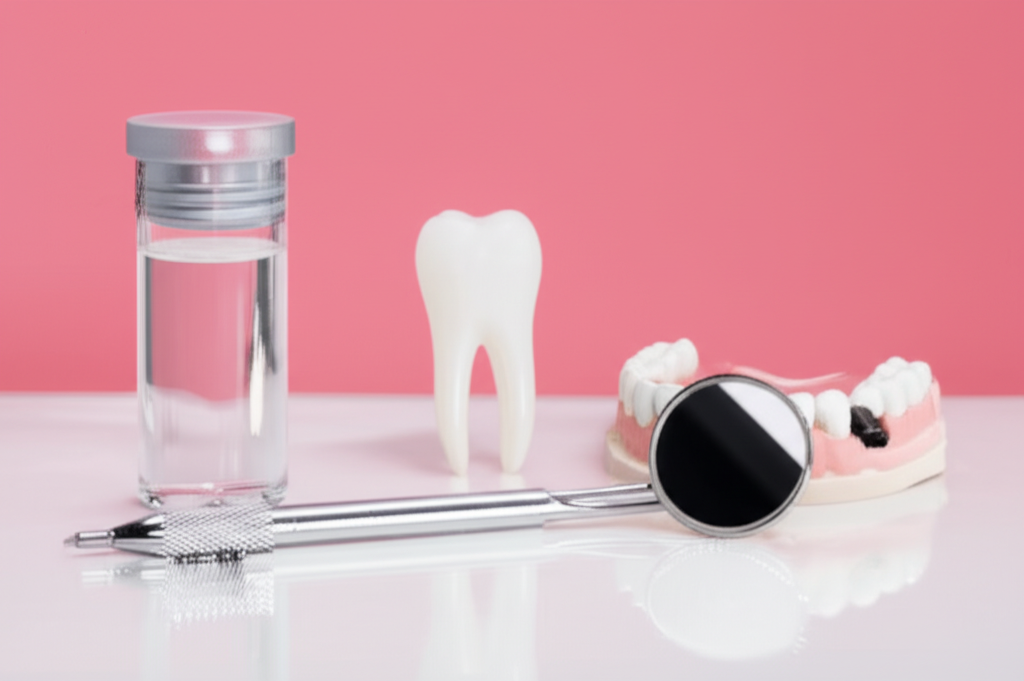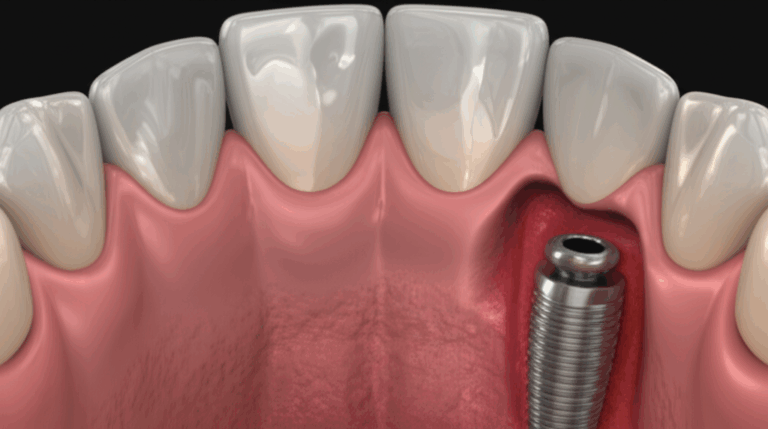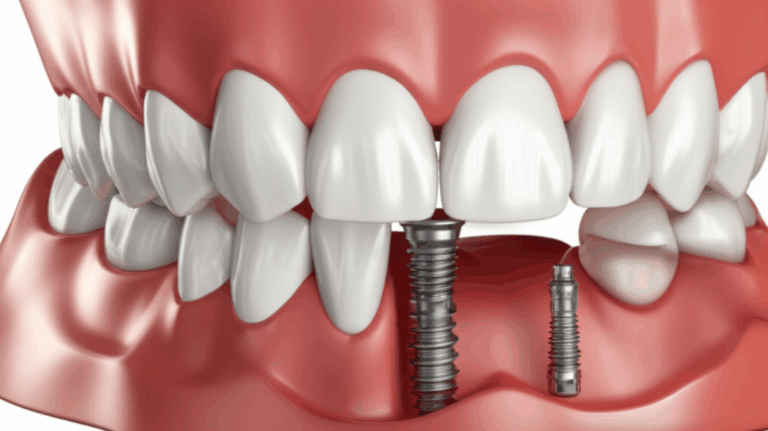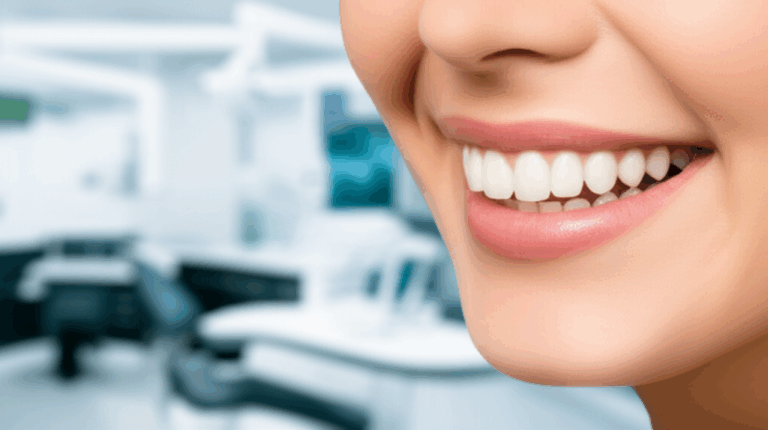
What Age Can You Get Dental Implants? Understanding Eligibility and Important Factors
That question keeps coming up — how old do you have to be for dental implants? Or maybe you wonder, “Am I too old for a dental implant?” If you’re looking for answers about age limits, safety, and who can get dental implants, you’re in the right place. It’s normal to feel unsure, whether you’re thinking about this for yourself, your teen, or an older family member. Dental implants are a big step for your smile and for feeling good every day. Let’s make things clear and help you feel sure about if — and when — dental implants might be right for you.
Table of Contents
The Age Question: Is There a Limit for Dental Implants?
Lots of people ask, “What age can you get dental implants?” It’s a good question — we all want to know if there’s a “right age” or if being too young or too old will stop us.
Here’s the truth: Yes, you need to be old enough because of jaw growth, but there’s pretty much no age that’s “too old” for implants if you’re healthy. People from their late teens to their 90s get dental implants and do just fine. It’s not so much about the number of birthdays — it’s about how healthy you are, how good your jawbone is, and your habits.
Let’s also talk about what a dental implant is. It’s a fake tooth root (most of the time, it’s made from titanium) that your dentist puts into your jawbone. In a few months, your bone grows around it (this is called osseointegration), and it becomes strong. Then a tooth, bridge, or denture is put on top. This method is the best for making a new tooth that lasts.
Now, let’s dig into all the age facts.
Minimum Age for Dental Implants: Why Bone Maturity Matters
Why do you have to be a certain age to get dental implants? It’s all about your jawbone finishing its growth.
Jawbone Growth: The Main Reason
Your jawbone, like the rest of your bones, grows a lot during childhood and your teenage years. When you go through puberty, your jaw grows even more, as part of your whole face finishing its shape.
The important thing: If you get a dental implant before your jaw is done growing, the bone can keep growing around the implant, which stays where it was put in. This could make your tooth look short or “sunken,” lower than your other teeth (this is called “infraocclusion”). It can be more than just looks — it could make eating, talking, and keeping the implant strong much harder.
Usual Age Ranges for Jawbone to Finish Growing
- Girls: Usually done by 16-18 years old
- Boys: Usually done by 18-20 years old
But not everyone grows at the same speed. Some finish growing early, others a bit later. That’s why your dentist may suggest a dental x-ray or a CT scan to check if your jaw is finished growing.
Why Not Do It Before That?
What if a teen loses a front tooth from a fall or was born missing a tooth? Dentists usually use temporary fixes:
- Removable partial dentures (like a retainer with a fake tooth)
- Space holders
- Bonded bridges
These fill the space until your jaw is ready for a real implant. Think of it like using scaffolding until the house is ready.
Very Rare Exceptions
In rare cases, if the tooth loss is really bad (like from an accident), dental specialists might try an early implant — but only if the risks are worth it. Most of the time, it’s smarter to wait.
Dental Implants for Young Adults (20s–40s): The Prime Window
If you’re in your 20s, 30s, or 40s, here’s some good news — this is the best time for dental implants. Why? Your bone is usually strong, and you usually don’t have health problems that get in the way.
Why Do People Get Implants at This Age?
- Accidents (car crashes, sports injuries)
- Didn’t get some adult teeth
- Bad cavities or gum disease that caused tooth loss
Success and How Long They Last
Here’s the kicker: Dental implants work 95–98% of the time for young adults over at least ten years. If you take care of your mouth, they may last a very long time.
Life After Getting Implants
You can eat what you want, smile in photos, and not worry about “slippery” dentures. Implants also stop your jawbone from shrinking — something regular dentures can make worse.
What About Middle Age? (40s–60s)
They say life starts at 40 — and you can still get implants without any problem.
What’s Different When You’re Older?
Maybe your bone isn’t quite as thick, and you might start getting gum disease or you might have long-term health issues (like diabetes that’s under control). But these are more like small bumps, not big roadblocks.
Most people in this age group are still great for dental implants—especially if you brush, floss, and see the dentist.
Why Get Implants Now?
- Chew better
- Keep your face shape (no “dentures face”)
- Give your confidence a real lift
Implants work just as well as they do for younger folks, as long as your gums are healthy and you have enough bone — or you’re okay with a bone graft (more on that soon).
Dental Implants for Seniors: Is There an Upper Age Limit?
Here’s a myth: There’s no age that’s “too old” for dental implants. That’s right. You can be 65, 75, or even 95 and get them.
Older Adults and Implants
Lots of older people do well with dental implants. More and more people over 65 are getting implants every year.
What Really Matters?
- Overall health (chronic health problems like diabetes are fine if controlled)
- Ability to have a simple surgery (usually just local numbing, easy to handle)
- Bone quality (sometimes bone grafting is needed, but that’s doable)
Health Problems and Medicines
Some drugs — like strong bone drugs (bisphosphonates) for osteoporosis, blood thinners, or uncontrolled diabetes — can slow healing. Still, don’t give up! Many people can work with these issues if the dentist plans carefully.
Implant Benefits for Seniors
- Chew more kinds of foods (better nutrition)
- Talk and laugh without worrying about fake teeth slipping
- Keep your cheeks looking full and avoid sinking in
- Implants can even help make dentures fit better
The Big Idea
It’s more about health and bone, not age. Studies show implants work just as well in seniors as in younger people if you’re healthy and the dentist plans it right.
Factors Beyond Age: What Really Determines Eligibility?
Let’s be simple. Age is just a piece of the puzzle. Here are the main things dentists look at:
1. Jawbone Health
- You need enough good bone to hold an implant.
- Lose bone? Don’t worry—bone grafts or sinus lifts can often build it up again.
2. Gum Health
- Healthy gums are a must.
- Gum disease (periodontal disease) needs to be fixed first.
3. Overall Health
- Diabetes, high blood pressure, or heart disease is ok if under control.
- If your health is not stable, best to fix that first.
4. Medicines
- Some meds, especially strong bone drugs or drugs that stop your body from fighting germs, can slow healing. Talk to your dentist.
5. Habits
- Smoking doubles the chance of an implant not working.
- Keep teeth and gums clean, always.
6. How Much You’ll Care for It
- You have to keep going for cleanings and check-ups.
- If you don’t care for your implant, it won’t last!
Things That Might Stop or Delay Implants
- Jaw still growing (teens)
- Active gum disease
- Health problems out of control
- Lots of bone loss (unless you want a bone graft)
- Smoking (not a full stop, but a big risk)
Why Consultation Is Key: The Evaluation Process
Everyone’s mouth is different. You need an in-person, thorough check-up before getting dental implants. Here’s what happens:
1. Personal Check-Up
The dentist or oral surgeon will:
- Check your teeth and gums
- Take x-rays or a 3D scan to look at your bones
2. Look at Your Health
Talk about:
- All your medicines
- Any illnesses (diabetes, bone diseases, heart stuff)
- Old dental work
3. A Plan Just For You
If you’re a good fit, you’ll get a plan that goes over:
- How many implants you need
- If you need a bone graft or sinus lift
- How long it’ll take and what it’ll cost
- Other choices if you’re not ready yet
4. Ask Questions
It’s smart to ask about:
- How long to heal?
- What is recovering like for my age?
- What can I eat after?
Remember: The number of years you’ve lived is only part of the story. Bring your health info, dental x-rays, and ask away! That’s the best way to start.
Alternatives to Dental Implants at Different Ages
Dental implants are great — but not the only choice. Sometimes they aren’t right for everyone. Here’s what dentists may suggest instead:
For Teens or Kids (who are still growing)
- Removable partial dentures: A fake tooth on a retainer
- Space holders: If a tooth never grew in
- Bridges: Fill the space, but usually not forever
For Adults Who Can’t Get Implants
- Dental bridges: Fixed in place, use teeth on each side for support
- Full or partial dentures: Removable. Often for older folks or those missing lots of teeth.
- Implant-supported dentures: A mix if you can’t get lots of implants but don’t like slippery dentures.
Good and Bad Sides (Compared to Implants)
Bridges:
- + Quick and don’t need surgery
- – Need to trim the healthy teeth next to the gap
Dentures:
- + Cheap, no need for surgery
- – Can get loose, make sore spots, or change how you talk or taste
Implants:
- + Stay in place, feel and work like real teeth, keep jawbone strong
- – Need surgery, take a while to finish, cost more up front
“Who Is This For?” Good Candidates for Dental Implants
Strong Candidates:
- Grown-ups with jaws that have stopped growing (usually 16–18+ for girls, 18–20+ for boys)
- Healthy gums and enough jawbone
- No health problems that mess with bone healing
- Good habits for keeping teeth clean
- Non-smokers or willing to quit
Who Might Need Other Choices or to Wait:
- Teens still growing
- Grown-ups with serious, out-of-control diseases
- Anyone with active gum disease
- People with not enough bone who don’t want a bone graft
- Long-term users of certain bone drugs (doctor and dentist will need a special talk)
Your Healthy Takeaway: The Bottom Line on Age and Dental Implants
Let’s make it simple. Here’s what to remember about age and dental implants:
- There’s a minimum age: For girls, about 16–18; for boys, around 18–20 (when jaws are done growing).
- No max age: Healthy older people get implants all the time.
- Who gets them depends on: Bone health, gum health, medical problems, and habits (like smoking or not cleaning teeth).
- If your health is good and your dentist thinks it’s okay, age alone shouldn’t stop you from getting implants.
- There are other choices if dental implants are not right, or not right now.
- Always start with seeing a dental pro, so you know what’s best for you.
Take Action—Easy Steps for a Healthier, Happier Mouth
- Thinking about implants? Book a dental visit to see what’s best for you.
- Brush and floss every day. Healthy gums and bone help a lot.
- Don’t let your age — young or old — stop you from getting a good, strong smile and feeling your best.
- If you can’t get implants now, ask about temporary fixes and try again later.
Frequently Asked Questions
Q: Can a 16-year-old get dental implants?
A: Only if their jaw has finished growing, which is rare at 16. Your dentist will usually suggest something like a partial denture or space holder until your jaw is done.
Q: Is there such a thing as “too old” for dental implants?
A: No! If your health is good and you can have dental surgery, age doesn’t stop you at all.
Q: What if I have osteoporosis or diabetes?
A: If these are under control, most people can still get implants. Your dentist and doctor will talk and plan together.
Q: I lost my tooth a long time ago — do I still have enough bone?
A: Maybe, maybe not. Over time you might lose bone, but lots of times bone grafts can fix this.
Resources for More Information
- American Dental Association (ADA)
- Dental Implant Options Guide (learn more about types and steps)
- Common Dental Problems and Solutions (find tips and info)
A healthy smile can last your whole life — no matter your age. The most important thing: Age is only one part of the story. Talk with a dentist. Get help made for you. And don’t be afraid to get the strong, good-looking smile you want — whenever you’re ready.
Looking for top dental lab support? The right team can help make your new tooth look and work its best. Learn more about expert help for implants at a trusted implant dental laboratory.
Remember: Whether you’re 18 or 80, if your mouth is healthy, you can have a strong, confident smile. Take that step today.








